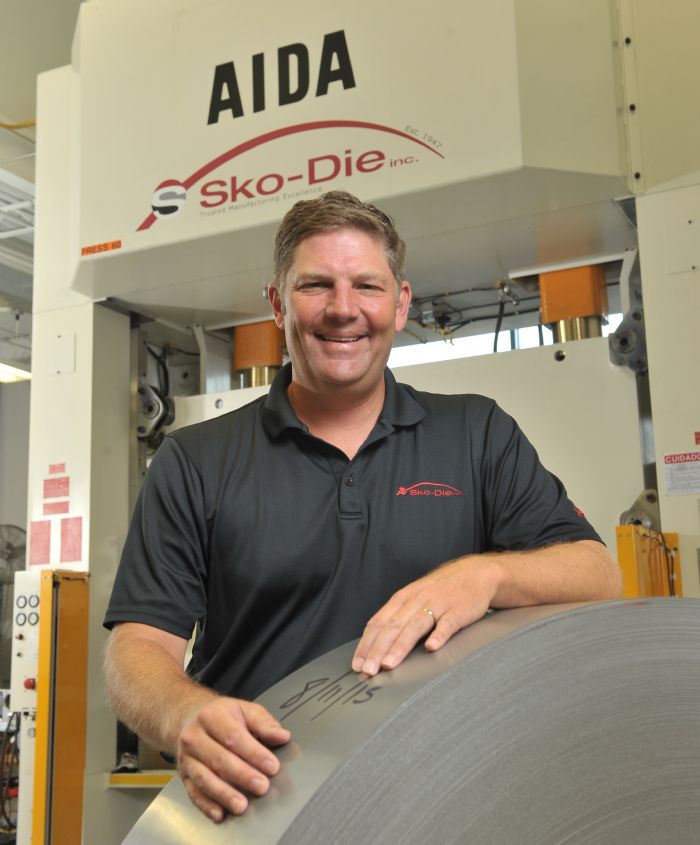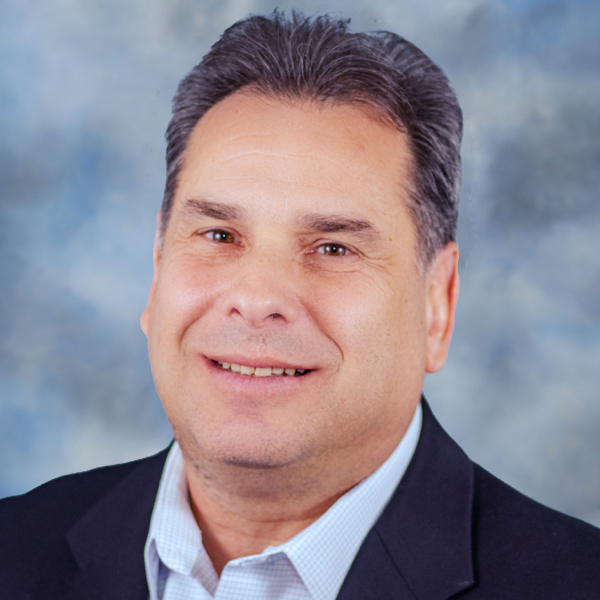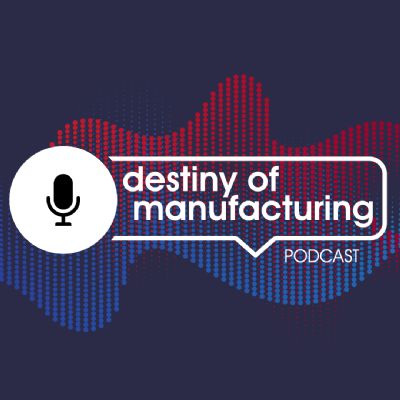When it comes to counsel, the networking groups in which I participate, including my Precision Metalforming Association (PMA) group, help guide the decisions I make. Most recently, for example, during a meeting of the PMA group we had a very enlightening conversation centered on succession planning. While I’m still many years from needing to execute such a plan, our conversation caused me to realize that succession planning is a lengthy, multifaceted process that takes time and effort…and I certainly understand that time moves quickly. So, I’ve started working with a financial planner who has expertise in this area, who already has taught me three important lessons:
- Don’t think that you have to execute your retirement at the same time that you sell the business. These can, and probably should be, two separate activities.
- If you own the real estate as well as the business, as I do, it’s okay to treat them separately in terms of selling. Don’t combine them or confuse those two things, he told me.
- And, if the business continues to run seamlessly while I’m gone for extended periods of time—and Sko-Die does!—that’s really good when you’re thinking about selling. I want our management team to function so well that customers don’t even notice when I’m not around.
Another takeaway from “EntreLeadership:” You need three bones to be a good leader—a wishbone, funny bone and, most importantly, a backbone. The backbone took me a while to develop after becoming president of Sko-Die, but it’s necessary and useful in every aspect of the company, whether dealing with customers, employees, the bank or other business partners.
Using my wish bone, I work with our management team to establish annual sales goals and develop a “wish list” of what we need to achieve those goals, with about 60 percent of the list comprised of equipment and the remainder personnel.
And in terms of the funny bone, I learned a long time ago to
not take myself too seriously and I encourage my team to do the same.
Finally, a third lesson from the book: There’s a quote from Gen. George Patton that goes, “A good plan, violently executed now, is better than a perfect plan executed next week.” Sometimes you can wait so long to make a decision that you wind up missing an opportunity.
In my case, we had an opportunity several years ago to
acquire a fineblanking business. While some of the members of our management
team were hesitant because we had no expertise in fineblanking, we went for it.
I feel like occasionally, you must try something different, even though there
may be some risk. And for us the risk was well worth the reward, as that
acquisition brought us 20 new customers that consistently generate $1.5 million
in annual sales, with healthy margins.
Q: What is the biggest challenge you face as a company leader?
Steininger: Like everyone else, finding good people presents a challenge. So, when I do find them, I really take care of them. I’ve loaned employees money, for example, when they’ve faced tough times. And they seem to appreciate that support, it builds loyalty—not only from the individual but from others at the company with whom they may network. In addition, we have a generous 401k plan, and we cover 60 percent of their health-insurance premiums, while many other companies might only cover 40 or 50 percent.
Finally, I sponsor our tool and die apprentices by paying
for all of their tools up front, so they have the tools they need. They pay me back with small weekly
disbursements from their paychecks.
Q: What are two or three of the most important things you look for in a mid-level manager?
Steininger: Trust, execution and humbleness. Why is being humble important? I want managers to respect everyone that works here, and to not have such an ego that they can’t relate to them. You must be able to talk to people sincerely, address them properly and not dismiss people. It’s very important to me that our team treats properly every employee here. I try to lead by example, a characteristic that I learned from my own parents. My dad was just as comfortable talking to a bank president as he was the cleaning crew, and I try to follow his lead.
Q: What are two things you believe your company is doing well? What's one thing you wish you could change?
We do well at shipping quality parts on time, and work hard
to ensure that we continuously improve in every aspect of the company. A good example is managing overall equipment
effectiveness (OEE) from our presses, which then helps reduce our lead times
and improve our on-time delivery performance. Along these lines, we recently performed
triage on our first-part inspection process to improve changeover times in the
pressroom. That alone improved OEE on
one of our largest and busiest presses by 5 percent.
If I could change one thing, it would be how government
officials treat businesses. It sometimes
feels like we are the enemy. A couple of years ago I purchased a building next
door with plans to expand by tearing the building down and building a new
production facility connected to our existing plant. But local government officials
limited us to turning the existing building into a warehouse.
Q: How do you encourage and motivate your management team?
Steininger: I try not to be a “BOSS,” and I work hard to remove any and all obstacles that might impede the success of the team, such as making sure we invest in the equipment and personnel needed to achieve their departmental goals, and the company’s goals. And, it may also mean doing something for them on a more personal note, to help with a family matter for example.
Recent capital-equipment investments at Sko-Die have focused mostly on automation, adding robots and cobots to feed blanks to our notching presses. We’ve doubled throughput by automating, and as a result typically enjoy a 12-18-month return on investment in the automation equipment.
When it comes to rewarding our employees, we set goals at
the beginning of each year related to gross profit, on-time delivery, and safety,
and if we hit them, everyone wins financially with two bonus payouts, one in
May and another in December.
Q: As technology seemingly evolves at an accelerating pace—automation, ERP/MES software, Industry 4.0, etc.—how do you and your team stay informed, and decide when to adopt new technology, or expand its use?
Steininger: I attend as many plant tours as I can, and I always learn something that inspires me, and that we can adopt at Sko-Die. A recent example comes from touring a plant with my PMA networking group, where I learned first-hand of the benefits from investing in a completely rebuilt high-speed press, rather than buying a new press at double the price. As a result, we’re now running dies at twice the speed we were on our older presses.
In addition, to ensure we stay current with new technology,
our team attends tradeshows, such as FABTECH.
Most recently, we attended the Automate Show, and came away with several
practical solutions for cobot installations.
Q: I assume it can be “lonely at the top” for you at times. How do you relax, release your stress and rise above the endless list of problems you have to deal with each day? What’s the last concert you attended?
Steininger: Most days, I am able of exercise for 30 to 60 min. I bike or use an elliptical and try to take a 25 min. walk at lunch time to clear my head a little.
I also have a daily devotional mobile app on my phone, “Daily Bible Devotion,” that each day delivers two inspirational “popup” messages, one in the morning and one in the afternoon, that will lift my day and make me feel better. On the way to work each day I listen to a fun podcast; most recently I’ve been listening to a podcast aimed at Brady Bunch Fans, “The Real Brady Bros.” It’s hosted by Barry Williams (Greg) and Christopher Knight (Peter), who review an episode and share funny stories about its production.
My last concert? Cold Play, 2017 at Soldier Field in Chicago. It was raining and Chris Martin said to the audience, “OK all you 55-year-olds, stand up and celebrate.” My wife and I were 55 at the time, so I guess we were meant to be there.
Technologies: Management
 This month we invite Patrick Steininger, the third-generation
president and owner of metal former Sko-Die, Inc., Morton Grove, IL, to share
his insights. Owned and operated by the
Steininger family since 1947, Sko-Die operates from a 60,000-sq.-ft. facility
that houses more than 30 presses ranging from 5 to 400 tons. It provides prototype and high-volume stamped
parts, specializing in electrical-steel laminations, while also providing an
array of value-added services including tooling, laser cutting, welding and
machining.
This month we invite Patrick Steininger, the third-generation
president and owner of metal former Sko-Die, Inc., Morton Grove, IL, to share
his insights. Owned and operated by the
Steininger family since 1947, Sko-Die operates from a 60,000-sq.-ft. facility
that houses more than 30 presses ranging from 5 to 400 tons. It provides prototype and high-volume stamped
parts, specializing in electrical-steel laminations, while also providing an
array of value-added services including tooling, laser cutting, welding and
machining. 







 Podcast
Podcast